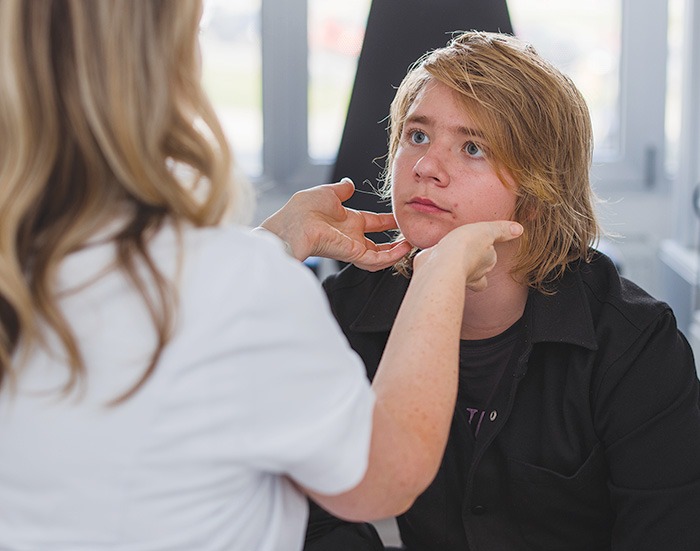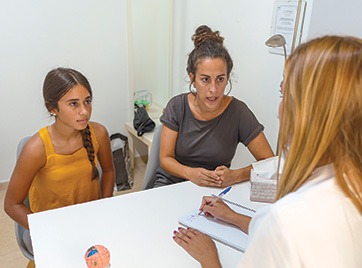
Pharmacists across the country have a new way to connect, collaborate and drive the profession forward, with the launch of PSA’s Communities of Specialty Interest (CSIs).
Facilitated through online forums, the four CSIs – Early Career Pharmacists, Contemporary Community Pharmacy Practice, Interdisciplinary Team-based Care and Respiratory Care – provide a place for PSA members to network, stay up-to-date on the latest issues affecting the profession and provide feedback to PSA on important topics.
The PSA National President Associate Professor Chris Freeman officially opened CSI Week on Monday, following the launch of the Early Career Pharmacist CSI at PSA21 in July.
‘These CSIs provide an opportunity for PSA members to discuss and advise the PSA of current and emerging practice needs and specialty interests of pharmacists,’ he said.
‘The principal focus of the CSIs is to provide a pharmacist’s perspective in a defined practice area, and to support the vision and mission of the PSA relating to that practice.’
Australian Pharmacist caught up with the Chairs of each CSI to find out what each group is all about – and why pharmacists should get involved.
Early Career Pharmacists
The PSA has a long history of bringing early career pharmacists (ECPs) together through its state and territory working groups.
ECP CSI Chair, PhD candidate and PSA Early Career Pharmacist Board Appointed Director Deanna Mill MPS, told AP the new group would build on this tradition and make it easier than ever for pharmacists across the country to connect.
‘The ECP CSI will bring together the best of what the state working groups have contributed over the years and make it accessible for all ECP members, no matter where in the country they practice, their area of practice or the amount of time they can contribute,’ she said.
‘It’s ECPs without borders. The opportunities to share what ECPs are passionate about and identify like-minded peers are now endless, as our discussions are no longer limited to a monthly meeting of local ECPs and can happen where and when it suits us via the discussion forum.’
She said the group is a space ‘for ECPs, by ECPs’ with no judgement, and urged every ECP PSA member to join.
A benefit of the CSI model is that members can pick how involved they would like to be, whether that’s reading posts in the forum or commenting and sharing themselves.
‘You can choose the level of involvement that suits you, which makes it very accessible,’ Ms Mill said.
‘I hope to help facilitate members of the CSI to link up and share their thoughts, concerns and innovations. Through empowering each other we can elevate the ECP voice to create the profession that we and Australians deserve.’
Contemporary Community Pharmacy Practice
The Contemporary Community Pharmacy Practice CSI, chaired by community pharmacy owner, academic and PSA National Board member Dr Fei Sim FPS, is the group for PSA members practicing in community pharmacies.
It aims to help drive community pharmacy practice forward and identify the complexities, opportunities and challenges facing community pharmacists today.
Now is the perfect time to launch such a group, Dr Sim told AP, as there has been a ‘paradigm shift’ in community pharmacy practice in recent years.
‘To meet the contemporary needs of patients, consumers and the overall health system in Australia, the role of community pharmacists has expanded beyond medicine supply and will only continue to evolve,’ she said.
‘The Contemporary Community Pharmacy Practice CSI serves as a platform to enable development in an effective and sustainable manner moving forward. Community pharmacists can no longer be reclusive in our practice, and we need to work together to gain the roles, recognition and remuneration we deserve, and we are in it together.’
She called on PSA members to join the CSI ‘to make waves and a positive impact’.
‘Not only does it allow pharmacists with similar practice interests to share and debate ideas, the CSI groups also serve as a conduit to enable pharmacists to actively contribute and advise the PSA of current and emerging practice needs, ultimately contributing towards driving policy changes,’ she said.
Interdisciplinary Team-based Care
The Interdisciplinary Team-based Care CSI, led by consultant clinical pharmacist Debbie Rigby FPS, aims to establish a national network of pharmacists practicing in, or aspiring to practice in, interprofessional care teams.
As pharmacists involved in this area of practice often work for themselves, Ms Rigby said a key benefit of the CSI was the opportunity for professional connection.
‘Many pharmacists are practicing in isolation and will benefit from a network of like-minded pharmacists delivering current programs, such as HMRs and RMMRs, as well as emerging areas of practice including pharmacists in general practice and aged care, and working in ACCHOs and disability services,’ Ms Rigby told AP.
‘I hope the ITBC CSI will provide support and networking to interested pharmacists, and improve the quality and consistency of existing medication management programs … and provide opportunities and ideas for innovative roles for pharmacists wherever medicines are used.’
Respiratory Care
Led by Professor Sinthia Bosnic-Anticevich MPS, the Respiratory Care CSI will initially focus on the current status of asthma management in pharmacy practice and the role of the pharmacist in respiratory management.
Prof Bosnic-Anticevich said the group aims to develop a framework for a Respiratory Toolkit and a National Respiratory Advocacy Strategy.
‘It is quite clear that over the last 5–10 years the respiratory landscape has been changing,’ she said.
‘Our understanding of the pathophysiology and treatment of chronic obstructive lung diseases, specifically asthma and Chronic Obstructive Pulmonary Disease, has meant that the delivery of care has also needed to change. This has implications for pharmacy and pharmacists, and while guidelines provide the overall context for the delivery of care, they are rarely fit for purpose for pharmacy.’
The Respiratory CSI is open to pharmacists across the spectrum of practice, including
research, education and advocacy. Members will gain the opportunity of having a voice and providing advice and influence into the development of strategies for the profession around respiratory care.
‘It will enable a dynamic and vibrant platform where practising pharmacists will have the opportunity to input and impact on the strategies developed for the delivery of respiratory care in the community and across the continuum of care,’ Prof Bosnic-Anticevich added.
Find out more about PSA’s Communities of Specialty Interest here.



 Pharmacists have always prescribed, but they have the potential to prescribe much more
Pharmacists have always prescribed, but they have the potential to prescribe much more



 Sponsorship information
Sponsorship information


 Talking to patients who have questions
Talking to patients who have questions




